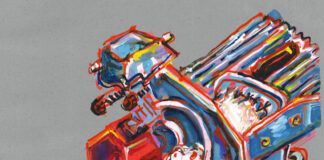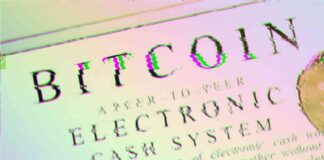Barry Silbert, a prominent figure in the crypto investment world, has set his sights on decentralized AI as a groundbreaking opportunity that could surpass the impact of bitcoin. In a recent letter to shareholders of his company, Digital Currency Group (DCG), Silbert expressed his enthusiasm for what he sees as the next major evolution in the crypto landscape. The convergence of artificial intelligence (AI) with blockchain technology, known as deAI, has captured Silbert’s attention as a transformative force that could revolutionize the way we interact with technology.
Silbert’s comparison of deAI to the rise of bitcoin is not taken lightly, as he draws parallels between the potential societal implications of both innovations. While bitcoin has reshaped the financial landscape, deAI has the potential to democratize the ownership and governance of powerful AI models. Silbert sees crypto as the mechanism to distribute this newfound power, shifting the focus from digital asset ownership to the decentralized ownership of intelligence and vast compute resources.
DCG, under Silbert’s leadership, has already made significant investments in deAI projects, totaling $105 million across a variety of initiatives. One standout in the portfolio is Bittensor, a crypto network specializing in machine learning and AI applications. Silbert views Bittensor’s TAO token as a promising contender in the deAI space, drawing comparisons to the dominance of bitcoin in the cryptocurrency market.
With TAO’s market cap currently at $2.7 billion, Silbert sees immense potential for growth and impact. DCG’s commitment to supporting the Bittensor ecosystem is evident through the creation of Yuma, a subsidiary dedicated to incubating Bittensor infrastructure projects. Additionally, Grayscale, another arm of DCG, now offers investment products that provide exposure to TAO, further solidifying the company’s commitment to the deAI space.
Silbert’s optimistic outlook on deAI comes on the heels of a period of rebuilding for DCG, following challenges stemming from the FTX implosion and the subsequent sale of CoinDesk. Despite these obstacles, Silbert is confident in the progress made by DCG in 2024, citing enhanced infrastructure, improved governance, and a stronger organizational focus on growth initiatives.
As the crypto landscape continues to evolve, the intersection of AI and blockchain technology presents a unique opportunity for investors and industry players alike. Silbert’s vision for deAI as a transformative force highlights the potential for innovation and disruption in the years to come.
Expert Insights: The Future of Decentralized AI
To gain further perspective on the implications of decentralized AI, we turned to expert voices in the field. Dr. Sophia Chen, a leading AI researcher at Stanford University, emphasized the importance of democratizing access to AI technologies. “By decentralizing ownership and governance of AI models, we can empower a wider range of individuals and organizations to harness the power of artificial intelligence for societal good,” Dr. Chen stated.
In a similar vein, Dr. Marcus Green, a blockchain expert at MIT, highlighted the role of blockchain technology in enabling the decentralized AI revolution. “Blockchain provides a secure and transparent framework for ensuring the integrity of AI models and their associated data, paving the way for a more equitable and inclusive AI ecosystem,” Dr. Green commented.
As the conversation around decentralized AI continues to gain momentum, experts like Dr. Chen and Dr. Green offer valuable insights into the potential impact of this emerging technology on society and the broader crypto landscape.
Embracing the Future: Opportunities in Decentralized AI
For investors and innovators looking to capitalize on the rise of decentralized AI, the time is ripe to explore opportunities in this burgeoning field. With companies like DCG leading the charge in funding deAI projects, there is ample room for growth and innovation in the AI and blockchain intersection.
Whether through investing in promising projects like Bittensor or exploring new applications of AI in decentralized contexts, the possibilities are endless for those willing to embrace the future of technology. As Barry Silbert aptly puts it, decentralized AI represents a generational opportunity that could redefine the way we interact with artificial intelligence and blockchain technology.
As we navigate the ever-changing landscape of crypto and AI, one thing remains clear: the potential of decentralized AI to shape the future of technology and society is too significant to ignore. By embracing this transformative force, investors and industry stakeholders stand to gain a front-row seat to the next big era of innovation and disruption.


















